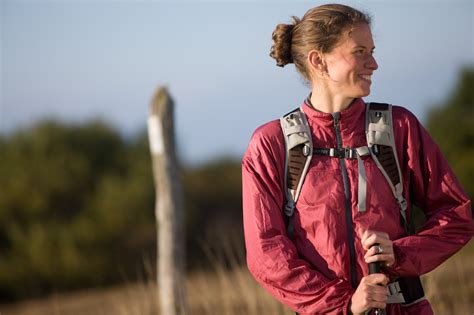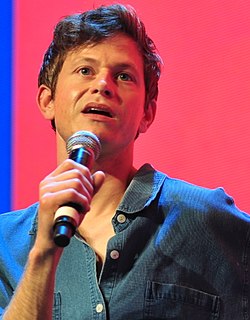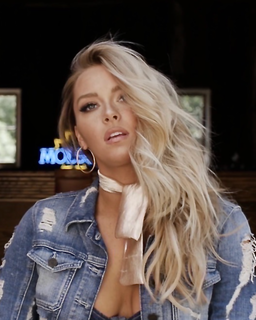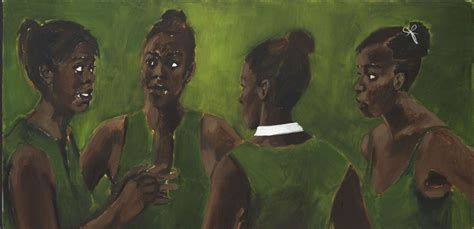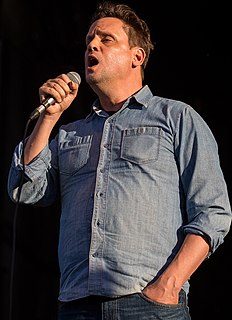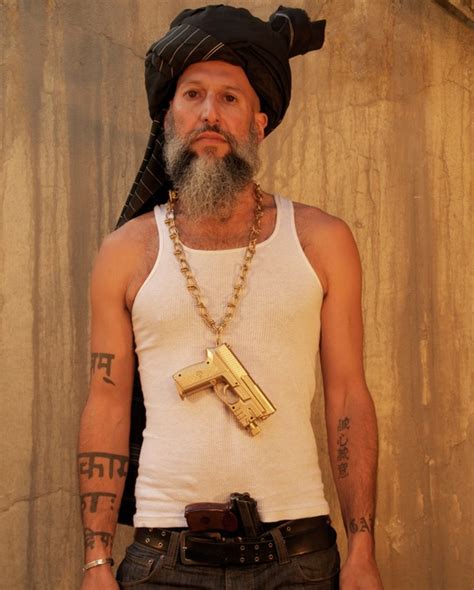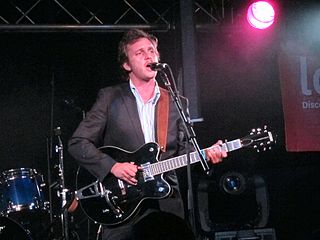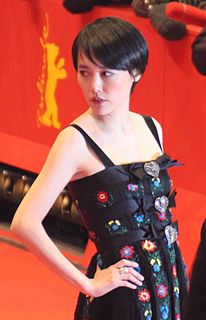A Quote by Jennifer Pharr Davis
A lot of people talk about the trail healing them, but I feel like, the first time, it humbled me, which I probably needed. It was a completely new way to experience the world and my body.
Related Quotes
I always talk to all the crew. I always make it pleasant. I always nurture a relationship that makes people feel like they're important, like they're a part of the collaboration. I feel that way about the young actors on set. I don't talk to them like I'm the mentor; I talk to them like they're my peers. And I learned that from Meryl Streep.
This fact was something I also learned from this first novel that I needed personal experience to invent, to fantasize, to create fiction, but at the same time I needed some distance, some perspective on this experience in order to feel free enough to manipulate it and to transform it into fiction. If the experience is very close, I feel inhibited. I have never been able to write fiction about something that has happened to me recently. If the closeness of the real reality, of living reality, is to have a persuasive effect on my imagination, I need a distance, a distance in time and in space.
It's hard to pin down what the politics would be, in a way. For me the politics are very visual and felt, thought, seen, but not necessarily put into words. The confusions and conditions within the work are the politics. The fact that a lot of the time the first thing people want to talk to me about is the racial angle, which is a part of the work and I am happy to talk about it, but it's not necessarily the first thing on my mind when I am making something.
If a fan approaches me and I feel like they have some kind of agenda, I'm probably gonna get real closed-off and not talk to them. But if I feel a connection with someone, or if I feel a certain trust with somebody, I feel like, 'You know what, I can open up to this person and tell them about an experience.'
I write a lot on airplanes actually because it's completely isolating; there's no one to talk to, there's nothing to do. And then I think a lot of it sort of comes out sitting down with the people I'm co-writing with and talking to them about what I'm going through and what I want to say. It just sort of happens; every song came about in a completely different yet organic way.
So often we try to make other people feel better by minimizing their pain, by telling them that it will get better (which it will) or that there are worse things in the world (which there are). But that's not what I actually needed. What I actually needed was for someone to tell me that it hurt because it mattered. I have found this very useful to think about over the years, and I find that it is a lot easier and more bearable to be sad when you aren't constantly berating yourself for being sad.
I'm definitely seeing more and more new people at shows, which is exciting. It's nice for me, because it's a fresh start. I don't feel as obligated to play old favorite songs - it feels like I'm free to try new things because I'm meeting people for the first time. But there's a lot of people who are showing up and they know all the words to the first album and they're requesting songs from the second album.
I feel like we've inherited modern infrastructure, and I could run away from it and become a full-time activist, or I can try to do my job, and try to talk about things I care about, and be able to do something like sponsor a topsoil conference in Nova Scotia, and talk about Bill McKibben, and narrate a documentary about the vanishing of the bees, and try to navigate my way through this world the best way possible. That's what I'm trying to figure out. Probably like many people right now.
When I go to the cinema, I want to have a cinematic experience. Some people ignore the sound and you end up seeing something you might see on television and it doesn't explore the form. Sound is the other picture. When you show people a rough cut without the sound mix they are often really surprised. Sound creates a completely new world. With dialogue, people say a lot of things they don't mean. I like dialogue when it's used in a way when the body language says the complete opposite. But I love great dialogue I think expositional dialogue is quite crass and not like real life.
